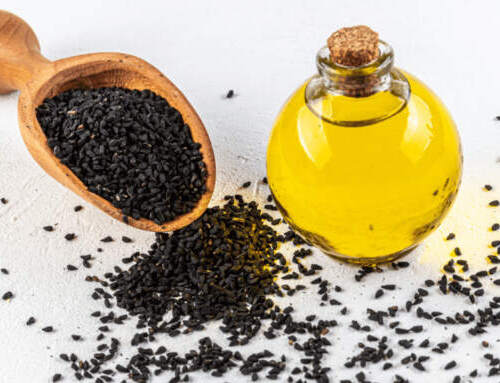Are you constantly battling hunger pangs and cravings? Dive into this comprehensive guide on natural appetite-suppressant foods that may help you lose weight and maintain satiety throughout the day. Discover how these foods can be a game-changer in your weight loss journey.

1. What is an Appetite Suppressant?
An appetite suppressant is a dietary substance that helps reduce appetite, making you eat less and feel full faster. While there are many appetite suppressant pills and weight loss supplements available in the market, hunger suppressant foods offer a safer and more holistic approach to controlling hunger.
2. Why Go Natural?
Natural appetite suppressants, derived from foods, are free from synthetic chemicals and side effects. They not only help curb hunger but also provide essential nutrients to the body. Moreover, they play a pivotal role in body weight control without compromising health.
3. How Does Avocado Suppress Appetite?
Avocado, a natural fatty acid-rich fruit, has been shown to help suppress appetite. One study found that eating avocado reduced levels of the hunger hormone ghrelin, making individuals feel fuller for longer. Additionally, its dietary fiber content can further promote feelings of being full.
4. The Role of Solid Foods in Satiety
Solid foods, compared to liquid foods, require more chewing, which can increase satiety signals. Foods high in protein and dietary fiber, such as beans and whole grains, can enhance the feeling of being full, reducing overall food intake.
5. How High-Fiber Foods Help Curb Hunger?
Foods, like fruits, vegetables, and whole grains, can help increase feelings of fullness. Dietary fiber slows digestion, leading to prolonged feelings of fullness and reduced hunger. This can be beneficial for weight loss and appetite control.
6. Can Spicy Foods Reduce Hunger?
Research suggests that spicy foods, especially those containing red pepper, may help suppress your appetite. Capsaicin, a compound found in spicy foods, has been associated with appetite reduction and increased metabolism.
7. The Connection Between Fat and Fullness
Dietary fats can play a significant role in appetite control. Fats take longer to digest, providing a prolonged feeling of fullness. Foods like nuts, seeds, and olive oil can help manage your appetite and reduce food cravings.
8. The Science Behind Hunger Hormones
Hormones such as ghrelin (often termed the “hunger hormone”) and leptin play crucial roles in hunger and satiety. Understanding their functions can provide insights into appetite control and weight management.
Ghrelin:
- What is it? Ghrelin is produced primarily in the stomach and, to a lesser extent, in the small intestine, pancreas, and brain.
- Function: Ghrelin’s primary function is to stimulate appetite. It signals the brain to induce feelings of hunger. When your stomach is empty, ghrelin levels increase, sending hunger signals to the brain. After you eat, ghrelin levels drop, reducing the sensation of hunger.
- Role in Weight Loss: Elevated levels of ghrelin can lead to increased food intake and potential weight gain. Some studies have shown that individuals who are sleep-deprived tend to have higher ghrelin levels, which might explain increased hunger and food intake in such individuals. [How to Get More Sleep]
Leptin:
- What is it? Leptin is often termed the “satiety hormone” or “fullness hormone.” It is produced by the body’s fat cells and is secreted into the bloodstream.
- Function: Leptin’s primary role is to signal the brain, particularly the hypothalamus, that you have enough energy stored in your fat cells and don’t need to eat more. In other words, it tells the brain that you’re full and should stop eating. It also plays a role in energy balance and metabolism.
- Role in Weight Management: People with more body fat tend to produce more leptin. However, if someone is overweight or obese, their body might become “leptin resistant.” This means that even though there’s a high level of leptin in the blood, the brain doesn’t receive the fullness signal as effectively. As a result, they might continue to feel hungry, leading to overeating and further weight gain.
Interplay between Ghrelin and Leptin:
The balance between ghrelin and leptin is crucial for appetite regulation. When functioning correctly, these hormones work in tandem to ensure that you feel hungry when you need energy and full when you’ve consumed enough. However, various factors, such as lack of sleep, stress, or being overweight, can disrupt this balance, leading to increased hunger, overeating, and challenges in weight management.
In summary, ghrelin and leptin are essential regulators of hunger and satiety. While ghrelin promotes hunger, leptin induces feelings of fullness.
9. Foods That Help You Lose Weight
Incorporating foods that suppress appetite naturally, like almonds, beans, and grapefruit, can aid weight loss. These foods not only curb your appetite but also provide essential nutrients, promoting overall health. [What it’s like to lose weight as you age]
- Spinach, Kale, Broccoli, and Mustard Greens: Foods high in thylakoids. [Read more about spinach]
- Protein and Healthful Fats: These can help you feel fuller for longer.
- Water: Drinking water before every meal can help reduce hunger.
- High-Fiber Foods: Such as beans, legumes, and whole grains.
- Greek or Icelandic Yogurt: Rich in protein and probiotics.
- Avocados: Contains healthy fats and fiber.
- Red Chili Peppers: Contains capsaicin which can boost metabolism and reduce appetite.
- Barley: A whole grain that can help reduce hunger.
- Soup: Liquid-based foods can help you feel full.
- Vegetable Salad: High in fiber and water content.
- Oats: A whole grain that provides sustained energy.
- Wild Salmon: Rich in omega-3 fatty acids.
- Eggs: High in protein and can help suppress hunger.
- Fruits: Especially those high in fiber and water content.
- Legumes: Such as lentils and chickpeas, are high in protein and fiber.
- Fenugreek: A herb known for its appetite-suppressing properties.
- Glucomannan: A type of fiber that can tamp down hunger.
- Green Tea Extract: Contains caffeine and catechins that can help reduce the desire to eat.
- Watermelon: Apart from suppressing appetite, it also provides antioxidants and supports cardiovascular health.
It’s worth noting that while these foods can help suppress appetite, it’s essential to consume them as part of a balanced diet and not solely rely on them for appetite control. Always consult with a nutritionist or healthcare professional before making significant changes to your diet.
10. The Future of Natural Appetite Suppressants
While many natural appetite-suppressant foods have shown promising results, more research is needed. Scientists are continuously exploring new foods and herbs that can help with weight loss and appetite control.
FAQ’s
Q: What are natural appetite suppressant foods?
A: Natural appetite suppressant foods are foods that have the ability to suppress hunger and appetite. They are typically high in fiber, protein, or certain natural compounds that help you feel fuller for longer and curb cravings.
Q: How do natural appetite suppressants work?
A: Natural appetite suppressants work by influencing appetite hormones, increasing feelings of fullness, and stopping hunger. They may help decrease the levels of ghrelin, the hunger hormone, and increase the levels of leptin, the hormone responsible for signaling fullness.
Q: What are some examples of natural appetite-suppressant foods?
A: Some examples of foods include avocado, fiber rich foods, protein-rich foods, and foods that are high in natural fatty acids. These foods help eliminate cravings and keep you feeling fuller for longer.
Q: Can natural appetite-suppressant foods help with weight loss?
A: Yes, natural appetite suppressant foods can be beneficial for weight loss. By slowing hunger and helping you feel fuller, they may help you reduce the amount of food you consume, thus aiding in weight loss efforts.
Q: Are there scientific studies supporting the effectiveness of natural appetite suppressants?
A: Yes, there have been scientific studies investigating the effects of natural appetite suppressants. A systematic review and meta-analysis of randomized controlled trials found that high-fiber foods help curb hunger and reduce food intake, which can be beneficial for weight management.
Q: Do natural appetite-suppressant foods have any other health benefits?
A: Yes, these foods have other health benefits beyond just aiding in weight loss. They can help regulate blood sugar levels, reduce the risk of type 2 diabetes, improve digestion, and promote overall health and well-being.
Q: Are there any side effects of consuming natural appetite-suppressant foods?
A: Generally, consuming natural appetite suppressant foods is safe and does not have any major side effects. However, it’s important to consume these foods in moderation as part of a balanced diet. Some individuals may be sensitive to certain fiber-rich foods and may experience digestive discomfort if consumed in excessive amounts.
Q: Can natural appetite suppressant foods be helpful for controlling cravings for junk foods?
A: Yes, these foods can be helpful for controlling cravings for junk foods. By keeping you feeling fuller and reducing hunger, they can help reduce the desire for unhealthy and calorie-dense snacks.
Q: How can I incorporate natural appetite-suppressant foods into my diet?
A: You can incorporate this healthy food into your diet by including them in your meals and snacks. Some ideas include adding avocado to your salads or smoothies, including whole grains and legumes in your meals, and choosing protein-rich snacks like nuts and seeds.
In Summary:
- Natural appetite suppressants are safer and nutrient-rich alternatives to synthetic pills.
- Foods like avocado, high-fiber foods, and spicy foods can prevent hunger and promote weight loss.
- Understanding hunger hormones can provide insights into appetite control.
- Incorporating appetite-suppressing foods into your diet can aid weight management and overall health.
Remember, while these foods can assist in appetite control, a balanced diet and exercise are essential for holistic health and well-being.





